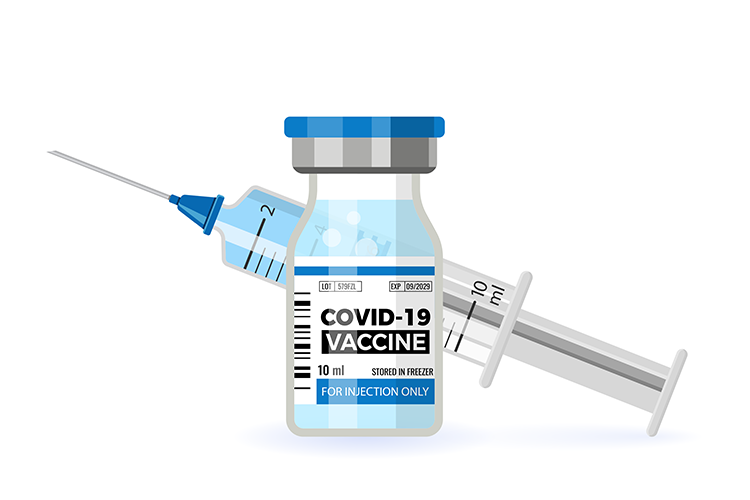Supreme Court allows vaccine mandate for health workers that didn’t offer religious exemption

Images from Shutterstock.
Maine’s vaccine mandate for health care workers, which doesn’t allow religious exemptions, is being enforced after the U.S. Supreme Court refused to intervene Friday.
The deadline for vaccinations was Friday, although Maine Gov. Janet Mills is allowing people to work if they have received their first vaccine and they wear protective gear, the Bangor Daily News reports.
The Supreme Court refused to grant an injunction to stop the mandate. Three dissenters—Justices Neil M. Gorsuch, Clarence Thomas and Samuel A. Alito Jr.—would have blocked the requirement, citing a “double standard” that allows medical, but not religious, exemptions.
The New York Times, the Washington Post, the Associated Press and SCOTUSblog have coverage.
A concurrence by Justice Amy Coney Barrett, joined by Justice Brett M. Kavanaugh, noted that the case was on the court’s emergency docket.
Barrett said the Supreme Court has discretionary judgment on whether to review such emergency applications.
 Related article from ABAJournal.com: “Do worker COVID-19 vaccine mandates have to offer religious exemptions? Courts differ; Breyer declines to act”
Related article from ABAJournal.com: “Do worker COVID-19 vaccine mandates have to offer religious exemptions? Courts differ; Breyer declines to act”
“Were the standard otherwise,” she wrote, “applicants could use the emergency docket to force the court to give a merits preview in cases that it would be unlikely to take—and to do so on a short fuse without benefit of full briefing and oral argument. In my view, this discretionary consideration counsels against a grant of extraordinary relief in this case, which is the first to address the questions presented.”
Gorsuch wrote the dissent, joined by Alito and Thomas.
“If human nature and history teach anything, it is that civil liberties face grave risks when governments proclaim indefinite states of emergency,” Gorsuch wrote.
Gorsuch said the medical exemption in Maine requires a doctor’s note that says vaccination “may be” medically inadvisable, with no further explanation.
“It seems Maine will respect even mere trepidation over vaccination as sufficient, but only so long as it is phrased in medical and not religious terms,” Gorsuch wrote.
Gorsuch said the mandate should be evaluated using strict scrutiny, and the state did not show that its rule is the least restrictive means of achieving its goals.
“This case presents an important constitutional question, a serious error and an irreparable injury,” Gorsuch wrote.
New York and Rhode Island also have vaccine mandates for health care workers that don’t allow religious exemptions, according to the AP. The 2nd U.S. Circuit Court of Appeals at New York upheld New York’s requirement Friday.
The Maine case is John Does 1-3 v. Mills.
Write a letter to the editor, share a story tip or update, or report an error.


